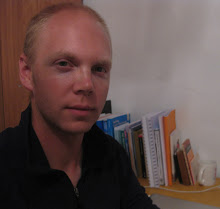Pg 125 Again, why does a supernatural being have to follow the rules contained within a natural universe? Irreducible complexity on earth points to a creator outside of the physical realm. It is not logical to continue the irreducible complexity argument once you leave what we understand as the physical realm.
126 You write, “One of the truly bad effects of religion is that it teaches us that it is a virtue to be satisfied with not understanding.” In the Bible we are not told to disregard our logical minds. Christ commands us to “love the Lord your God with all your heart and with all your soul and with all your mind and with all your strength.”
126 Dawkins also assumes that the gaps will eventually all be filled by scientific research. First of all, it is impossible to run an experiment on the process of evolution. It’s not observable, so we can’t make conclusions based on observation.
126-7 Dawkins makes a good point that Intelligent Design people (IDers) mooch off of scientists, only waiting to pounce on newly discovered gaps in evolution rather than going out and finding evidence for Intelligence Design. However, there are many scientists finding evidence for design and a young earth. Walt Brown is one (check out his book In the Beginning…). We can only draw conclusions from what is observable. Those facts are then run through an interpretation filter where one side concludes that evolution must be true and the other concludes that Intelligent Design must be true. It’s that interpretation filter that’s so complicated and involved and wrapped up in our worldview and perspective and reference frame and subconscious.
127 Dawkins says that molecular genetics is evidence for evolution.
128 Dawkins states, “No anachronistic fossils have ever been authentically found.” I think this means that you don’t want to believe any of the anachronistic fossils that have been discovered are real. This would be interesting research. Also – on the other side of the coin, some fossils that stand as champions of evolution have a pretty sketchy record, like the Leakey’s Lucy for example. Different body parts from this supposed individual were discovered hundreds of meters apart.
129 Is there molecular evidence of scaffolding?
132 Dawkins writes about evolutionary theory: “A lot more work needs to be done, of course, and I’m sure it will be.” Here’s another quotation: “Now faith is being sure of what we hope for and certain of what we do not see…” Hebrews 11:1. Dawkins has faith too. He is sure of what he hopes for and certain of what he doesn’t see. He sees some of the gaps filled by scientific discoveries – (which by the way are not therefore proofs against God’s existence) and assumes that every gap and every process will be able to be explained without needing a creator.
133 I think science should do everything it can to find ways to ease people’s pain. How is that a bad thing? Jesus says to feed the hungry, clothe the poor. If a particular scientist believes in evolution and is able to do this, let him!
134 I will give the same answer “He’s always existed and he’s not constrained by nature.” It’s impossible to fully grasp and difficult for many to believe. But that’s the answer, and I’ll never apologize for it. If there is a supernatural being, then that’s the way it is. I cannot prove it to you like a math theorem. Then you answer, “Which of course, explains nothing.” I won’t even try to explain the how of God existing outside of nature and the exact relationship between the two. But I will explain God’s character. And his relationship with people. And I will let the Holy Spirit work in people’s lives and I’ll let their hearts speak honestly to themselves about what they think about God.
134 In the Christian worldview, God did not create pain. He did not design us with intentions for back pain or arthritis or broken bones or heartbreak for that matter. We were designed perfectly and with the intention that we would live in perfect communion with our creator never knowing or experiencing pain. However, we chose to go against God and leave his presence, leave his will for us. This brought pain into the world. The fact that there are prey and predators at all is the result of our own doings. God is still on the side of his creation even though it chose to disobey.
137-9 Here we read about the anthropic principle. Dawkins explains the anthropic principle in this way: The odds of life beginning spontaneously are 1 in a billion billion. This seems very small and unlikely, but when you consider the fact that there are a billion billion planets that could potentially support life, then 1 of those planets will have life. Everything in our situation just seems to line up so perfectly because we happen to be that 1 in a billion billion!
I challenge the anthropic principle. First of all, I’d like to start with a brief statistics lesson. Thank you to my statistician consultant, Steve Lund (a doctoral candidate in statistics at Iowa State), for providing the following:
Assume a billion billion sided die. Each side has an equal chance of being rolled. Each roll has no effect on subsequent rolls. Let’s assign the perfect set of conditions that start life to side #1. What are the odds that “1” will be rolled at least once when the die is rolled 1 billion billion times? It’s not 100% as Dawkins assumes in his thought argument. The answer is actually about 63%, or less than two-thirds. So even if the figures are the numbers that Dawkins proposes, there’s still a 37% chance or so that life would not begin on any planet. Mr. Lund would like to further provide that the odds proposed are purely hypothetical bordering on the arbitrary, so it’s not too productive to even go through the statistics. However, Dawkins provides some numbers for arguments sake, so I will continue my argument in the same vein.
Next Dawkins says that “Natural selection works because it is a natural one way street to improvement.” Then he admits that natural selection needs luck to get started, but that the anthropic principle covers that infinitesimally small chance of natural selection getting underway. I think the odds are a lot worse than he thinks. To start things off I want to be fair to Dawkins and repeat his caution that we cannot put these same odds on the chances of Darwinian evolution happening and I totally agree. Yet once again, Dawkins is equating observable natural selection (Darwinian evolution) with evolution and they’re not the same thing.
Yet now look at this: Dawkins himself says there are “a few later gaps in the evolutionary story [that] also need major infusions of luck” and then says again it’s still probable that it happened because of the anthropic principle. But what is the odds multiplier for each of those “few later gaps” and just how many is a few? Let’s do some real number crunching. And, barring the impossibility of that, let’s at least be as realistic and quantitative with the numbers as possible.
Speculation wise, say the odds of that initial jump start to life are 1:1,000,000,000,000,000,000 (a billion billion.) Let’s say a few = 3. I think there are many more places in evolution that natural selection won’t smooth over and Dawkins hints that there are more as well. Now let’s say that the odds of each of those “later gaps” happening are a more promising 1:1,000,000,000. We have to multiply a billion 3 times against our original number. Now the odds of life making it all the way to our present day are 1:1,000,000,000,000,000,000,000,000,000,000,000,000,000,000,000. Or 1 in 1x10^45. Are there that many planets in the universe that could potentially support life?
I just looked this up - the NASA Website states that the Hubble Telescope in 1999 came up with a prediction of 125 billion galaxies in the universe. As technology gets better, this number could rise. For arguments sake, let’s say that number is actually 1,000 times bigger. Let’s say there are 125 trillion galaxies in the universe. Our galaxy, the Milky Way, has an estimated 300 billion stars. Charley Lineweaver of the University of New South Wales in Australia told space.com, "There are about 300 billion stars in our galaxy. About 10 percent (or 30 billion) are roughly Sun-like," he explained. "At least 5 percent (1.5 billion) but possibly as many as 90 percent or 100 percent (about 30 billion) of these have Jupiter-like planets." The thought is that Jupiter planets hold the key to surviving (and possibly thriving) earth-like planets. So if every solar system with a Jupiter planet also had an earth-like planet, then there would be 30 billion planets with the potential to support life, or about 1 planet to every 10 stars at best.
Next let’s say that the average galaxy holds not 300 billion stars but 1 trillion stars. This again is a liberal estimate. That makes the number of earth like planets 100 billion per galaxy. All we have to do now is multiply our number of galaxies with our number of planets-with-potential per galaxy to get the total number of these planets in the universe.
100 billion x 125 trillion = 1.25x10^25
This number is far smaller than our odds calculated above, 1 in 1x10^45. The anthropic principle can no longer be our mathematical savior.




